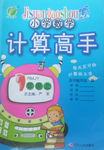题目内容
This is an open letter to the three people who stole my handbag from the department store I am employed as a shop assistant.
When you took my bag, I don’t know what you thought you were going to get. With my wages, there’s not much left on a Tuesday. I hope the £5 was useful to you. I have informed the social security office so you won’t be able to cash the child benefit next week. I hope that won’t leave you too short.But if you really need a couple of pounds, I suppose you could always cash one of the two checks left in my check book.Of course, I phoned the bank right away and the check-cashing card is no longer valid(有效的), so it won’t be much use to you.
Actually I don’t mind about the money too much. We single parents who work to support our families understand only too well what it means to be short of cash. However, I don’t suppose it went very far among the three of you. Sorry about that!
I wish you had left the bag behind and just taken the wallet and check book.There were all kinds of papers in it, and notes and things that I really need. I really think that was very inconsiderate of you . I mean, how would you like something like that to happen to you?
Well, perhaps the bag will turn up. It wasn’t even an expensive one, just a plain, old brown leather handbag. You probably dumped it in the nearest rubbish bin or threw it into the bushes. We’ve looked around, of course, but no one saw which way you went after you left the shop.
I’m not really angry with you.I know how the pressures of modern living can affect us, but I am sad at the loss of my personal things. I feel offended and helpless. The police were very icy, and they just shrugged(耸) their shoulders. “It happens all the time,” they told me. Some small comfort, I suppose. But I’ve lost just a little more faith in human nature. And as my young son said when I told him what had happened, “Why? Mummy, why us?” I couldn’t answer that question. I wonder if you can.
1.In writing Paragraph 2, the writer wants to __________.
A. describe the contents of the bag in detail B. give some suggestions to the three thieves
C. tell the thieves they could hardly get any money D. state the fact that she was careless with the money
2.Which of the following is the most valuable to the writer?
A. The cash in her bag. B. The papers and notes in the bag.
C. The handbag itself. D. The check books in the bag.
3. What can we conclude about the police?
A. They have doubts about human nature. B. They show sympathy for the woman.
C. They think the case quite common. D. They are unable to find the thieves.
4. Why does the author write the letter?
A. To give the thieves a serious warning. B. To complain about the fall of human goodness.
C. To call people’s attention to their belongings. D. To express her affection for her valuable bag.
1.C
2.B
3.C
4.B
【解析】略

 计算高手系列答案
计算高手系列答案Monty Roberts owns a horse ranch(牧马场) in San Ysidro. He told us his story. As a senior, he was asked to write a 36 about what he wanted to be and do when he grew up. 
That night he wrote a seven-page paper 37 his goal of someday owning a horse ranch. He wrote about his dream in great 38 and he even drew a diagram of a 200-acre ranch, showing the 39 of all the buildings.
He put his heart into the 40 and the next day he handed it in to his teacher. Two days later he received his paper back. On the front page was a large red F with a note that 41 , ‘See me after class.’
The boy with the dream went to see the teacher after class and asked, ‘Why did I 42 an F?’
The teacher said, ‘This is an 43 dream for a young boy like you. Owning a horse ranch requires a lot of money. There’s no 44 you could ever do it.’ Then the teacher added, ‘If you will 45 this paper with a more realistic goal, I will reconsider your grade.’”
The boy went home and 46 it. He asked his father what he should do. His father said, ‘Look, son, you have to 47 your own mind on this. However, I think it is a very 48 decision for you.’
Finally, after sitting with it for a week, the boy turned in the 49 paper, making no changes at all. He stated, ‘You can keep the F and I’ll keep my 50 .’
Monty now owned a 200-acre ranch. He had 51 his plan for a 4,000-square-foot house.
Two summers ago that same school teacher brought 30 kids to camp out on his ranch for a week. When leaving, he said 52 , ‘Look, Monty. When I was your teacher, I was something of a dream 53 . During those years I stole a lot of kids’ dreams. 54 , you had enough perseverance not to give up on yours.’”
Don’t let anyone steal your dreams. 55 your heart, no matter what.
| 【小题1】 |
|
| 【小题2】 |
|
| 【小题3】 |
|
| 【小题4】 |
|
| 【小题5】 |
|
| 【小题6】 |
|
| 【小题7】 |
|
| 【小题8】 |
|
| 【小题9】 |
|
| 【小题10】 |
|
| 【小题11】 |
|
| 【小题12】 |
|
| 【小题13】 |
|
| 【小题14】 |
|
| 【小题15】 |
|
| 【小题16】 |
|
| 【小题17】 |
|
| 【小题18】 |
|
| 【小题19】 |
|
| 【小题20】 |
|
There are various ways in which individual economic units can interact with one another. Three basic ways may be described as the market system, the administered system, and the traditional system.
In a market system individual economic units are free to interact among each other in the marketplace. It is possible to buy commodities from other economic units or sell commodities to them. In a market, transactions may take place via barter or money exchange. In a barter economy, real goods such as automobiles, shoes, and pizzas are traded against each other. Obviously, finding somebody who wants to trade my old car in exchange for a sailboat may not always be an easy task. Hence, the introduction of money as a medium of exchange eases transactions considerably. In the modern market economy, goods and services are bought or sold for money.
An alternative to the market system is administrative control by some agency over all transactions. This agency will issue commands as to how much of each good and service should be produced, exchanged, and consumed by each economic unit. Central planning may be one way of administering such an economy. The central plan, drawn up by the government, shows the amounts of each commodity produced by the various firms and allocated to different households for consumption. This is an example of complete planning of production, consumption, and exchange for the whole economy.
In a traditional society, production and consumption patterns are governed by tradition; every person’s place within the economic system is fixed by parentage, religion, and custom. Transactions take place on the basis of tradition, too. People belonging to a certain group or caste(阶级) may have an obligation to care for other persons, provide them with food and shelter, care for their health, and provide for their education. Clearly, in a system where every decision is made on the basis of tradition alone, progress may be difficult to achieve. An inactive society may result.
【小题1】What is the main purpose of the passage?
| A.To outline contrasting types of economic systems. |
| B.To explain the science of economics. |
| C.To argue for the superiority of one economic system. |
| D.To compare barter and money-exchange markets. |
| A.valuable | B.concrete | C.absolute | D.reliable |
| A.rapid speed of transactions | B.misunderstandings |
| C.inflation | D.difficulties for the traders |
| A.Individual households. | B.Small businesses. |
| C.Major corporations. | D.The government. |
| A.Family background | B.Age |
| C.Religious beliefs. | D.Custom |